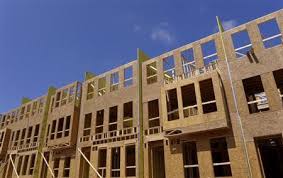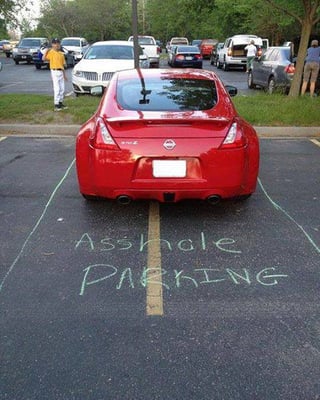 Developers, now is the time to apply for a commercial construction loan. Mortgage brokers, now is the time to resume brokering commercial construction loans. The economy is pretty healthy, and commercial banks are hungry to put their $2.7 trillion in excess reserves to work. By the way, if you want a commercial construction loan, you will want to apply to a commercial bank, rather than to a mortgage company. Commercial banks make 98% of all commercial construction loans. However, developers, you need to have some skin in the game.
Developers, now is the time to apply for a commercial construction loan. Mortgage brokers, now is the time to resume brokering commercial construction loans. The economy is pretty healthy, and commercial banks are hungry to put their $2.7 trillion in excess reserves to work. By the way, if you want a commercial construction loan, you will want to apply to a commercial bank, rather than to a mortgage company. Commercial banks make 98% of all commercial construction loans. However, developers, you need to have some skin in the game.
One of my commercial construction loan officers called me yesterday. He had a developer who is building a $33 million apartment building in Florida. The developer is buying the land for $2.7 million, and he has a term sheet for a purchase money first mortgage for $1.7 million. He wanted a second mortgage on his purchase of the land for $800,000. Who out there immediately spotted this as a goofy loan request?
A term sheet is defined as a loan proposal or conditional commitment letter (same thing) from a commercial real estate lender. Appraisals and toxic reports are so expensive in commercial real estate finance that borrowers want at least a moral commitment from the bank before shelling out $4,500 to $8,000 for these third party reports. A term sheet is legally worthless, but in real ife it means that the borrower is probably going to get the loan at the proposed terms, as long as the third party reports come back okay.

Now back to my story. Why was this a goofy loan request? Answer:
- No one makes second mortgages on land (other than sellers carrying back part of the purchase price).
- The bank is going to insist that the developer contribute at least 20% of the total cost of the project. Normally - but not always - this means that the developer has to bring the land to closing table (almost) free and clear. More on this below.
Before we go any further, let's define a few terms. The Total Cost of a commercial construction project is defined as the sum of the land costs, the hard costs, the soft costs, and the contingency reserve (normally equal to 5% of hard and soft costs).
Total Cost = Land Cost + Hard Costs + Soft Costs + Contingency Reserve
The Loan-to-Cost Ratio is the most important ratio in commercial construction loan underwriting. The Loan-to-Cost Ratio is defined as the Construction Loan Amount divided by the Total Cost, times 100%.
Loan-to-Cost Ratio = (Construction Loan Amount / Total Cost) x 100%

Example: Let's suppose a developer wants to build a three-unit industrial center in Austin, Texas. He needs a $3.2 million construction loan, and his total cost is $3.8 million. What is his Loan-To-Cost Ratio?
Loan-to-Cost Ratio = ($3,200,000 / $3,800,000) x 100% = 84.2%
This ratio is too high. Unless the developer can raise more equity, the loan will be turned down.
For most commercial construction lenders, the Loan-to-Cost Ratio must not exceed 80.0%. In other words, the developer must cover at least 20% of the Total Cost of the project. This kind of makes sense. The bank doesn't want to take all of the risk. The developer must stand to lose some serious dough if the project goes South. The developer must have some skin in the game.
Okay, now let's go back to the goofy commercial construction loan request I cited at the very beginning of this training article. You will recall that it was a $33 million apartment construction loan request. Well, we know that the developer and his investors are probably going to be required to contribute 20% of the $33 million Total Cost; i.e., $6.6 million.
Now the developer is buying the land for $2.7 million. He has a term sheet for a $1.7 million new first mortgage, and on top of that, he wanted an $800,000 second mortgage. In other words, he was only contributing a $200,000 downpayment on a $33 million project. His Loan-to-Cost Ratio was 99.4%! Somebody has been partaking of that Colorado medicinal tobacco. Ha-ha!
Remember, most commercial construction lenders want the developer to bring the land to the deal free and clear, or at least pretty close to free and clear. In most commercial construction deals, the land represents between 20% to 25% of the Total Cost, and that, along with architectural and engineering fees, is where most developers have spent their required equity.
Do you know a banker who is making commercial real estate loans? We'll trade you the contents of one banker's business card for a list of 2,000 commercial real estate lenders. We solicit these guys to refer their turndowns to C-Loans.





